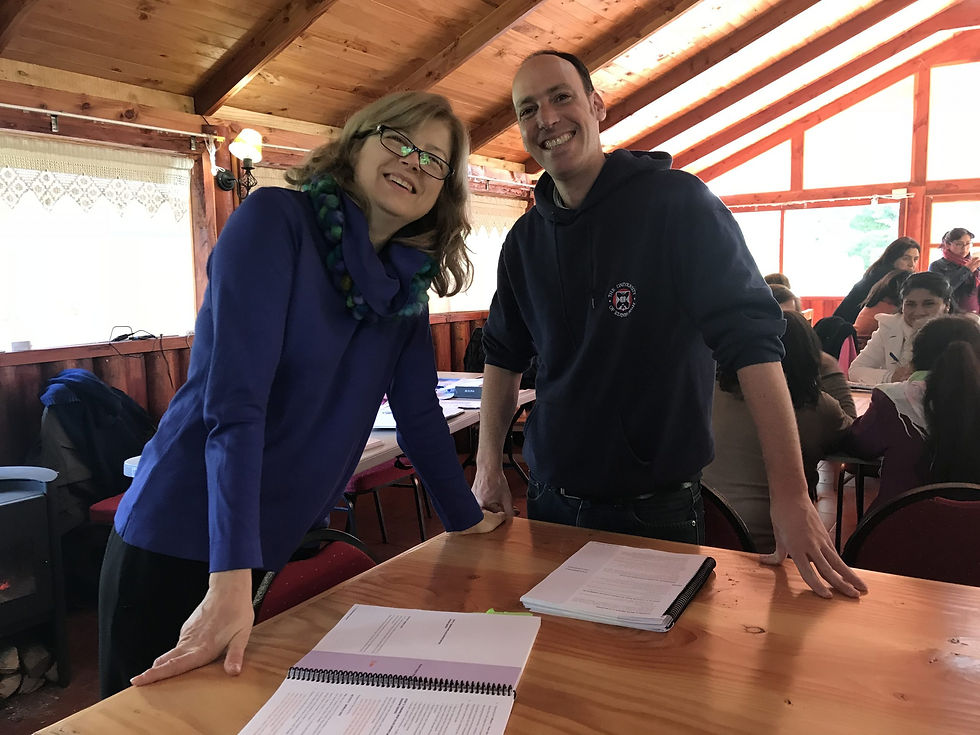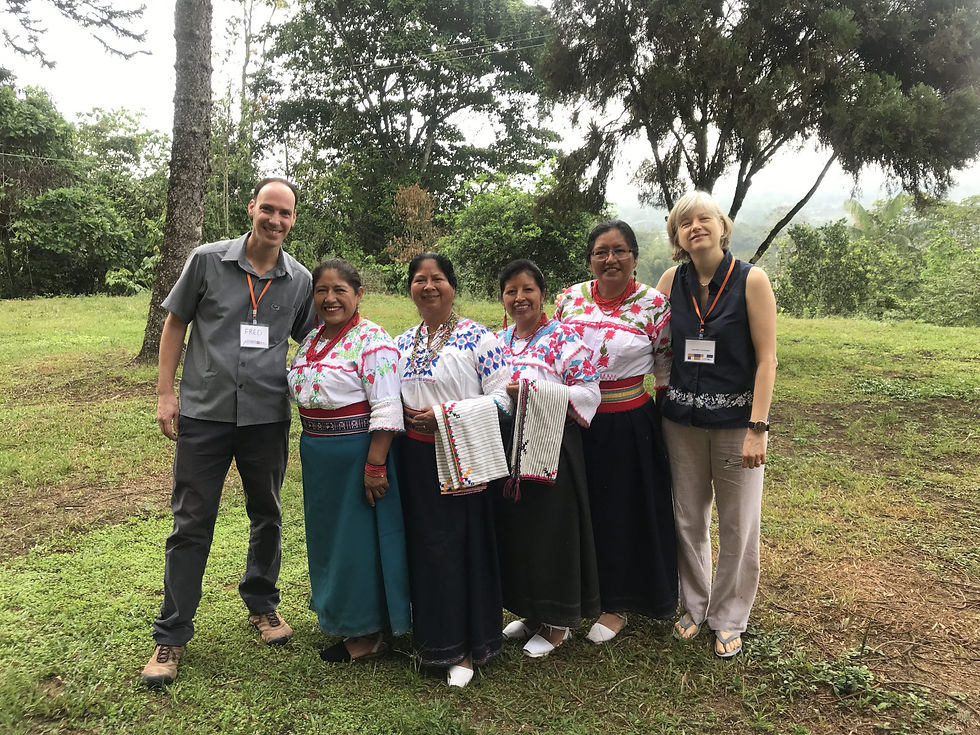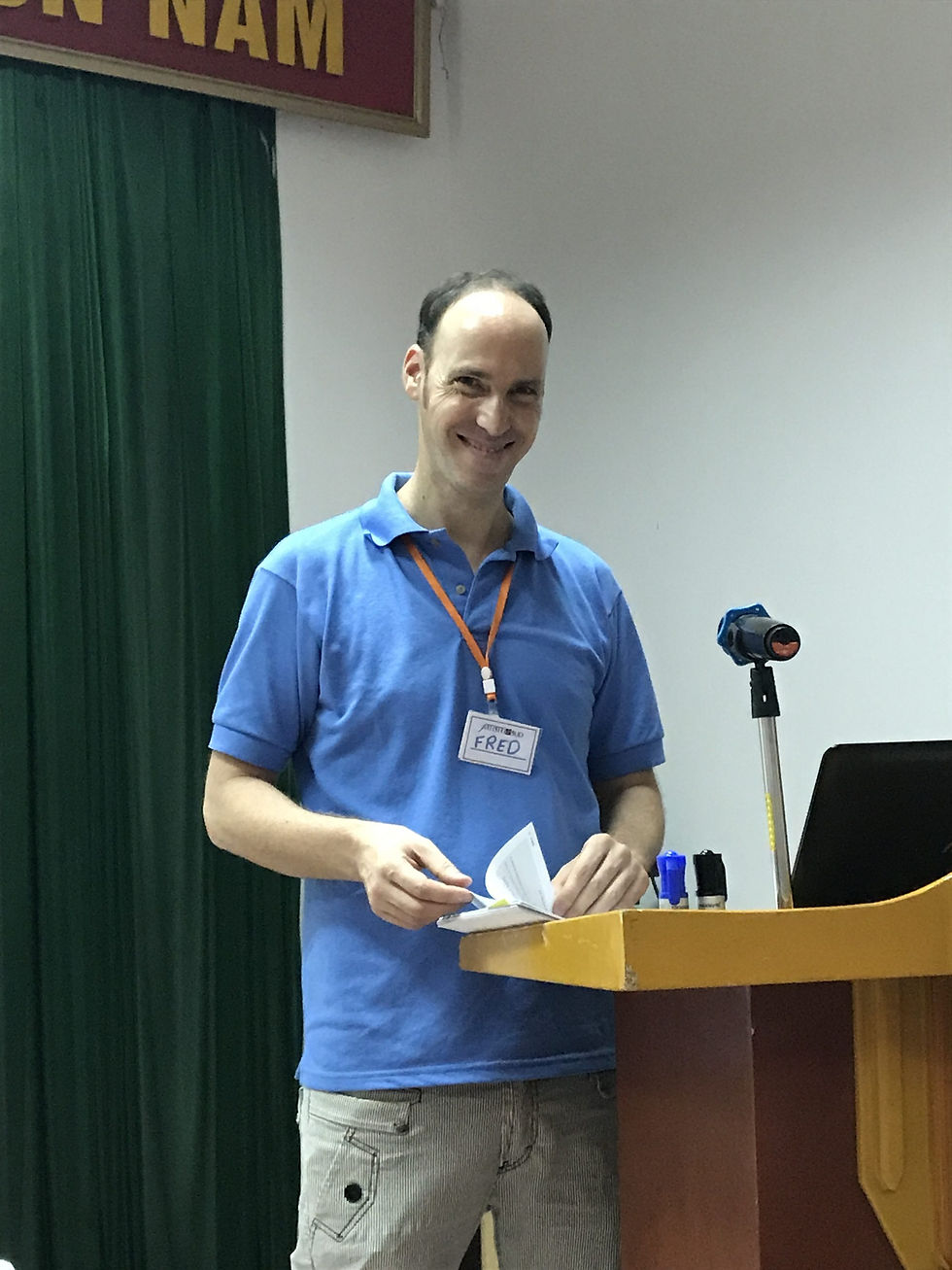
“Do no harm, and try to do some good.” That’s the mantra that Fred Schick lives and works by. A look through Fred’s experiences over more than 10 years in the international development field reveals his dedication to global development. As Lead Trainer of Artistri Sud since 2013, Fred has a unique perspective on the evolution of the
organization and its programming.
Fred in Vietnam in 2018
The Start of it All
Artistri Sud cast a wide net in its search for a trainer to deliver its pilot project in Bolivia, set to take place in September, 2013. “We were looking for someone who brought three key elements to the table–experience in entrepreneurship and business education and training; experience in education–specifically adult learning; and experience working with marginalized people,” says Executive Director, Dr. Jennifer Lonergan, who was on the recruitment committee led by the Curriculum developer. “It’s not a combination that’s easy to find.” Fred, a skilled educator and experienced development practitioner, who was working as a teacher in Bogota at the time, decided to apply. After a lengthy recruitment process, in which over 20 candidates were shortlisted, Fred was offered the role. This would become the first fully-realized Artistri Sud Social Entrepreneurship Training (ASSET) program, and the beginning of a collaboration with Artistri Sud which continues to the present.

When asked how he prepared to run a program he had never seen executed, Fred laughs.
“Many, many Skype calls with Jennifer and Virginia,” he admits, referring to then head of the Education Committee, Virginia Armeni, “and a lot of visualizations about how it was going to happen.”
Fred and Jennifer in Chile in 2017
Up for All Tasks
Since then, Fred has worked on almost every ASSET and Train-the-Trainer programs, as well as the new Leadership program that Artistri Sud has delivered, from both the program development and the implementation side. He has been the facilitator for all 3 programs, and has also served as Chair (and member) of the Program Development Committee. In 2019, he led the needs assessment and data collection in Ecuador. His involvement since the beginning in various capacities has allowed him to witness many changes over the years.

Artistri Sud over the Years
“We’ve made a lot of adjustments. For each program, we make some edits.” The changes range from significant differences in content, such as those made to the accounting module, to adaptations to the approach. “When we went to Vietnam, we included a lot more Powerpoints, videos and other visuals because the literacy rates were so low,” Fred explains.
→ Fred watches as participants work through a task in Ecuador, 2019
Other changes include developing a targeted leadership program, and significantly adapting the content such that it could be applied to any industry sector that entrepreneurs are interested in. “Our initial focus was on textile artisans,” he notes. “But last year, we piloted new content that could be applied to any sector.” Fred was excited about this change. “It increased inclusivity, and has since expanded our reach and who we can help. By the end of 2019, the first half of the program had essentially been rewritten to include other sectors, like agriculture and personal hygiene products, as well.”
Some Roadblocks
However, Fred’s experience with Artistri Sud has not been without some challenges. As a trilingual individual, Fred was able to communicate to Spanish-speaking participants in South America but when Artistri Sud first went to Vietnam in 2018, it was one of the most difficult programs due to the language barrier. Interpreters assisted in translating between English, Vietnamese and Hmong but Fred found it harder to connect through the translations.
“At times I felt a bit helpless,” Fred recalls. “The lack of communication was tough. I was definitely outside my comfort zone. But the women were so kind and open, despite the language barrier. And in the end I think they did take away a lot.

Why do you work with Artistri Sud?
“One thing that’s different about Artistri Sud, compared to some other development programs is that most have an intervention period, but then just move on. Artistri Sud doesn’t do that. One of the great things we do is the coaching program. For a year after the women go through the entrepreneurship training, they apply the skills and tools they learned.” Fred expressed how this coaching program, and the accountability and support it provides to the women, is part of what makes Artistri Sud’s ASSET program so successful. → Fred and Jennifer in Ecuador with graduates of the ASSET program!
Best moments
Although difficult to pin down just one preferred memory, Fred did share that the “I am” ice-breaker activity is one of his favorites. On the first day, all the participants are asked to identify themselves by roles or jobs. A majority strongly identify as a mother, weaver, or artisan. Then, on the last day, the participants are asked to repeat the activity. Fred notes how there is always a monumental shift in the answers- at this point, women identify as leaders, businesswomen or lifelong learners.
“Seeing a shift in how the women view themselves is a very gratifying moment. It’s very powerful.”
Fred is actively engaged in creating those transformational shifts in perspective. Jennifer Lonergan noted that Fred once raised the issue that he felt uncomfortable as the male trainer using the grammatical convention of addressing “you” (plural) and “we” in the masculine. Spanish, like many languages, reflects the highly patriarchal nature of our societies. If “we” is 100 women with one man, “we” becomes masculine. Nosotras becomes Nosotros, with just a single man.
“Fred was the only man in the room, and he didn’t like forcing the masculine pronoun on them, calling the women “we” in the masculine. So we discussed it, and decided that he would instead use the plural feminine, even though he was technically including himself in the “we”. One woman at the end of the training recognized him for it. She said she noticed that he did that and appreciated it. It was the first time she’d felt properly respected as a woman by a man–she felt he was acknowledging that they were the important people there. Everyone applauded in agreement. And Fred replied, saying, “of course, why wouldn’t I? I’m a feminist” and the whole class of over 40 women erupted into applause and cheers.”
In the end, Fred brought up a special memory from the 2016 Chile program. At the conclusion of the program, one of the participants looked around and noted how the facilitators didn’t give the answers. They all came from the women themselves. “That’s the magic that happens. When a participant lights up and you see that a-ha moment, when you see it all click- that is a great moment.”
***
We are pleased to announce that Fred will also be delivering our training again in Ecuador in 2020!


Comments